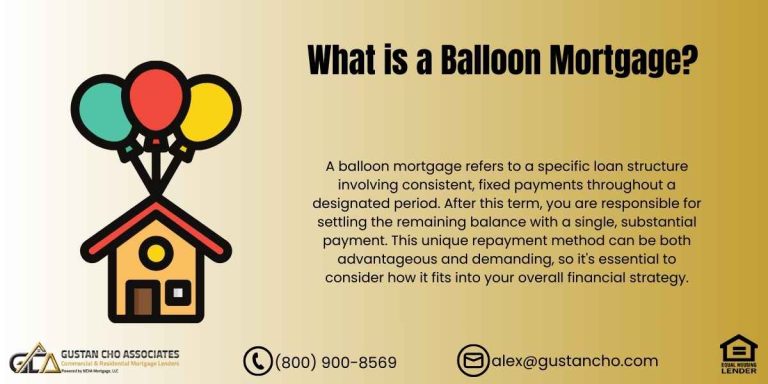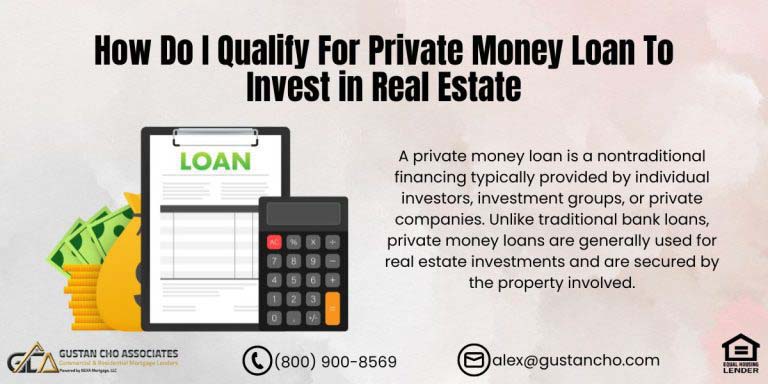This Article Is About How To Become A Private Money Lender For Real Estate Investors
To find a good opportunity to lend.
What constitutes a good opportunity to lend?
There are a couple of things you as a private money lender can do to be sure you’re getting the best possible opportunity to lend on. This takes a few factors that are controllable and then mitigating the rest that may not be as much. The idea is to make sure that you have the best possible scenario available to earn interest income.
Is Private Lending a Good Investment?
Private lending is a promising investment opportunity, particularly for investors seeking potentially higher returns than traditional avenues like stocks or bonds. However, this potential for increased returns comes hand in hand with elevated risks, necessitating carefully evaluating several key factors.
One crucial consideration is the risk-return tradeoff, where the higher risk of borrower default counterbalances the potential for higher returns in private lending. Diversification emerges as a critical strategy in mitigating this risk, as spreading investments across various loan types, industries, and borrower profiles can help cushion against losses from individual defaults.
Conducting thorough due diligence on borrowers is paramount, involving assessments of their creditworthiness, financial stability, and the purpose behind seeking the loan. Scrutinizing loan terms, including interest rates, repayment schedules, collateral, and default provisions, is equally important to gauge the investment’s attractiveness and risk exposure. When assessing the ability of borrowers to repay their loans, it is important to consider external factors such as market conditions and economic fluctuations.
These factors play a crucial role in determining the borrower’s repayment capacity. These factors can have an impact on the investment returns.
What Do You Need to be a Money Lender?
Several key steps and considerations must be addressed to become a money lender. First and foremost, it’s crucial to understand and comply with the legal requirements in your jurisdiction. This may involve obtaining licenses, permits, or registrations from regulatory authorities to operate as a legitimate lender.
Having sufficient financial resources is essential. Whether using your funds or acquiring capital from investors or financial institutions, adequate capital is necessary to lend to borrowers.
A well-thought-out business plan is another vital component. This plan should outline your lending strategies, target market, risk management policies, interest rates, and repayment terms. Conducting thorough risk assessments of potential borrowers is also critical to minimize the risk of defaults. This involves assessing creditworthiness, conducting background checks, verifying income and assets, and evaluating credit history.
Legal documentation plays a significant role in the lending process. You’ll need to prepare legally binding documents such as loan agreements, promissory notes, and disclosure statements that clearly outline the terms and conditions of the loan, including interest rates, repayment schedules, and consequences of default.
Compliance with relevant laws and regulations is non-negotiable. This includes adherence to lending practices, consumer protection laws, fair lending practices, privacy regulations, and debt collection laws. It is very important to provide excellent customer service and clear communication to borrowers regarding their obligations, rights, and options in case of financial difficulties.
Implementing robust risk management practices, such as diversifying your loan portfolio, setting appropriate loan limits, monitoring borrower performance, and having contingency plans for handling delinquencies and defaults, is essential for long-term success as a money lender. Upholding ethical conduct, transparency, and integrity in all lending activities is paramount, along with staying informed about market trends, regulatory changes, and industry developments to adapt lending practices accordingly and mitigate risks effectively.
Want Passive Income Secured by Real Estate?
Become a private money lender and earn solid returns while helping investors close fast.First Step On How To Become A Private Money Lender Is To Make Sure To Have Finances In Order
Before you can begin to take on external interest-only income investments you really need to be sure you have enough room to make this type of investment. As much as this is a rewarding investment tool to get into, it does have its risks. In doing your own due diligence at home first, you have the greatest opportunity to maximize your investment.
In this article, we will discuss the pros and cons, and risk factors involved in becoming a private money lender.
Next, Make Sure You Have The Right Financial Tool To Make It Work
There are a lot of ways you can make investments and professionals that are more than willing to take control of your money and put it to good use.
That said if where the money is stored, withdrawn, and deposited to or from is not “protected, you stand to lose as much as you gain; in some cases, even more. The best start on How To Become A Private Money Lender is to find out what financial tool is best to store your hard-earned money. It may make sense to use a Money Market Account. Or as is the case with many of our investors, a self-directed IRA is best. Whatever your choice you will want the right professional to help guide you through that process.
If you’re not sure who to talk to about those things we have a few pros we can send you to that are licensed and vetted by Gustan Cho Associates.
Now Find Your Risk Tolerance
This is one of those things where you sit down and write out a list of investments that you can think of in the private money lending realm and place a checkmark next to the ones that you actually feel good about.
Let’s say you look t Single Family Residences, and you think it is a good idea. You then place a check next to it. That means when someone brings you a deal like that, you will take the time to go through it, investigate it to your best ability, or through your broker’s intel gathering.
Then you make a decision based on what facts have been gathered and how much risk you are willing to take.
How To Become A Private Money Lender Is To Make Your Choice And Get To It
Now that you’ve figured out what you’re willing to risk, what you’re going to use to store and invest money with, and what you’re willing to invest in, (homes, buildings, etc.) you can begin to look at opportunities that can earn you a greater return.
Making sure that you have the right investment in your portfolio isn’t rocket science if you have the right “team” in place. Gustan Cho Associates Mortgage Group has the experience and the know-how to vet and create the right opportunity for both borrowers and investors to earn the best income on both sides of the equation.
If you’d like to learn how you can do more with your investments or need a referral to a professional that can help you find the right tool for investing, give us a call at Gustan Cho Associates at 800-900-8569 or text us for a faster response. Or email us at alex@gustancho.com.
Risks And Rewards In Of Private Money Lending
It’s the Most Passive Form of Real Estate Investment Available:
- One of the greatest benefits of becoming a private lender is private money lending is the most passive form of real estate investment
- The private money investor does not have to purchase a property, do any work to the property, does not have to collect rents, perform evictions, do maintenance, pull building repairs, or other tasks of being a landlord
- The investor will just lend to the real estate investor who will perform all of the tasks above
Average private money lenders can make north of 10.5% annually.
Partner with Real Estate Investors as a Private Lender
Put your capital to work in real estate deals. Short terms, high returns, and asset-backed loans.Knowing Where Your Money Is Invested
As a private money lender, you will know exactly where your money is invested. Unlike the stock market where you have no control, you have control over your investments. Gustan Cho, the National Managing Director at Gustan Cho Associates and veteran real estate investor and private money lender says the following:
When you opt to invest in private money lending for real estate, you have the peace of mind of knowing that your investment is secured with real property. There’s an actual asset that backs up your money. As such, there’s very little chance that a real estate developer could default on the investment making your investment very secure, with extremely low-risk.
There are substantial gains to be made by being a private money lender for real estate investments, and we’d love to talk with you about the possibilities. With just a minimum $50,000 investment, you could be looking at an annual interest return of 10.5% over a 24-month period, with up to 21% IRR. It’s 100% passive income, with one of the highest cash flows, extremely safe, and backed by real property. What could be better than that?
How Do Private Lenders Make Money?
Private lenders generate income through various avenues associated with the loans they provide. One of the primary sources of revenue is the interest charged on the principal amount lent to borrowers. This interest rate, determined based on factors like the borrower’s creditworthiness and prevailing market rates, contributes significantly to the lender’s income.
Private lenders often charge loan origination fees, which are one-time charges borrowers pay for processing and underwriting the loan. These fees, typically a percentage of the loan amount, add to the lender’s earnings. Some private lenders also levy points, upfront fees calculated as a percentage of the loan amount, which further contributes to their income.
Late fees imposed on borrowers for missed payments and prepayment penalties for early loan repayment are additional sources of revenue for private lenders, albeit smaller than interest and origination fees.
Furthermore, if private lenders service the loans they originate, they may earn income through loan servicing fees, covering administrative tasks like payment processing and borrower communication. Private lenders diversify their income streams through interest, fees, penalties, and servicing charges associated with the loans they extend.
What is the ROI of Private Lending?
The return on investment (ROI) in private lending is subject to a range of factors that collectively influence the profitability of these ventures. Central to this is the interest rate structure employed by private lenders, as higher rates generally correlate with increased ROI potential, albeit often accompanied by heightened default risk.
The nature of loans—real estate, business, or consumer-focused—also plays an important role, with real estate loans typically offering stronger ROI due to longer terms and collateral provisions. Managing risk, particularly default rates, is a major factor, as lower default rates translate to improved ROI prospects.
The terms of loans, including their duration, impact the stability and overall ROI potential, with longer terms offering steadier returns but potentially lower annualized rates than short-term loans. Operational costs, encompassing origination fees, servicing expenses, and general overhead, are critical considerations, as efficient management of these costs directly affects the net ROI.
External factors such as market conditions, interest rate fluctuations, and the broader demand for loans further influence the ROI landscape, necessitating adaptability and strategic decision-making to optimize returns. Diversification strategies, spreading investments across diverse loan types, borrower profiles, and industries, are also instrumental in mitigating risk and enhancing overall ROI in private lending endeavors.
For more information about this article and/or other mortgage-related topics on hard money loans, please email us at gcho@gustancho.com. If you need to qualify for FHA loans with a lender with no overlays on government or conforming loans, please contact us at Gustan Cho Associates at 800-900-8569. Text us for a faster response. The team at Gustan Cho Associates is available 7 days a week, on evenings, weekends, and holidays.
Looking for Higher Returns Than Stocks or Savings?
Private lending offers steady income and is secured by property. We’ll show you how to get started.FAQ: How To Become A Private Money Lender For Real Estate Investors
-
1. What constitutes a good opportunity to lend as a private money lender for real estate investors? A good lending opportunity for private money lenders involves conducting thorough due diligence on borrowers, assessing their creditworthiness and financial stability, scrutinizing loan terms, including interest rates and collateral, diversifying investments, and staying informed about market conditions.
-
2. Is private lending a good investment? Private lending can be a promising investment opportunity for those seeking higher returns, but it also comes with elevated risks. Investors must carefully evaluate risk-return tradeoffs, diversification strategies, due diligence on borrowers, and market conditions to determine if private lending aligns with their investment goals and risk tolerance.
-
3. What do you need to be a money lender for real estate investors? To become a money lender for real estate investors, you need to understand and comply with legal requirements, have sufficient financial resources, develop a business plan outlining lending strategies and risk management policies, conduct thorough risk assessments on borrowers, prepare legal documentation, ensure compliance with laws and regulations, and implement robust risk management practices.
-
4. How do private lenders make money? Private lenders make money through various avenues including interest charged on loans, loan origination fees, points, late fees, prepayment penalties, loan servicing fees, and other charges associated with lending activities.
-
5. What is the ROI of private lending for real estate investors? The return on investment (ROI) of private lending for real estate investors depends on factors such as interest rates, loan types, risk management strategies, loan terms, operational costs, market conditions, and diversification. Optimizing ROI involves balancing risks and returns, conducting thorough due diligence, and adapting strategies to market dynamics.
This blog about How To Become A Private Money Lender For Real Estate Investors was updated on April 2nd, 2024.








